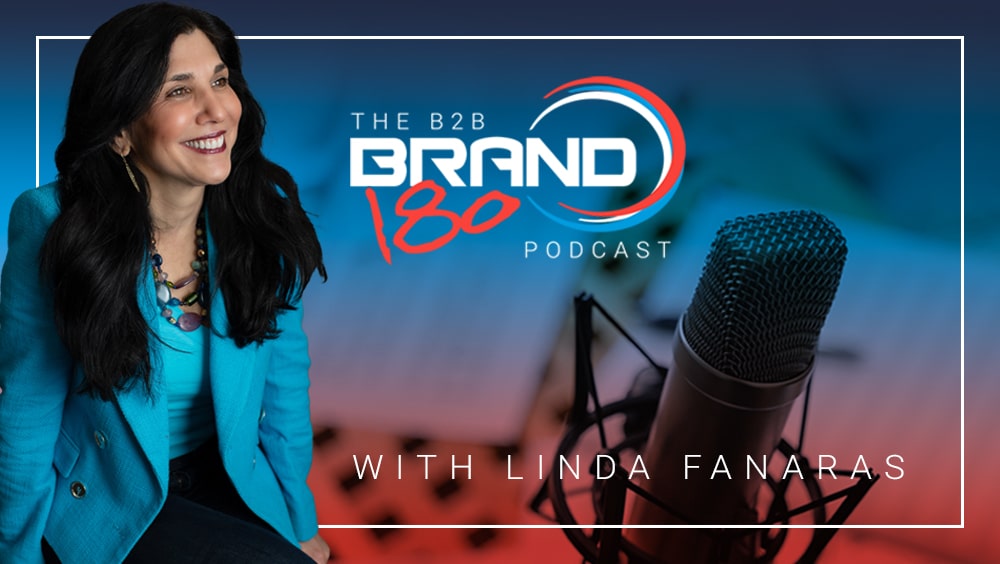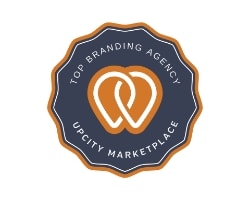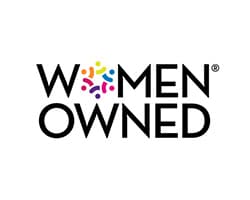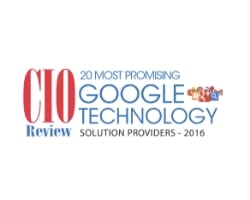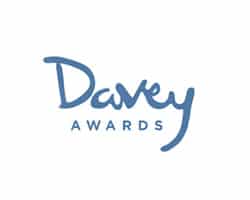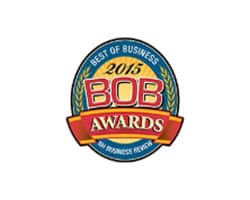In this episode of B2B Brand180, Linda interviews Zach Montroy from Intention Collective. Zach discusses strategic planning, execution for business growth, and the essentials of healthy leadership. Gain insights on aligning company vision with team efforts and the role of emotional intelligence in effective leadership. Zach also outlines his approach to helping businesses set and achieve their goals.
Thank you for listening and please like, share and subscribe to support our channel.
Visit Intention Collective: intentioncollective.co
You can follow Linda at: https://www.linkedin.com/in/lindafanaras/
and visit Millennium Agency at https://www.linkedin.com/company/millagency/
Linda Fanaras:
Hi, I’m Linda Fanaras, host of B2B Brand 180 podcast and CEO of Millennium Agency. And this is where we’re going to talk about all branding and marketing strategy. And today I have with me Zach Montroy from Intention. And he works with businesses to help them grow on a strategic level on planning and execution. And we’ll get into some details because this is a perfect time right now to start talking about this before we hit 2024. So, welcome, Zach. It’s great to have you here on our podcast today.
Zach Montroy:
Awesome. Thanks so much, Linda. It’s great to be with you today. I Zach, we, my wife and I live in Nashville, Tennessee. We have three young boys, three boys under the age of 10. So. Life is always fun and interesting for us, but I had founded the intention collective and the intention collective really helps businesses grow and scale. And we have a focus on doing that in a healthy way, making sure that we are leading purposeful, meaningful companies. We’re building healthy teams. And from a leadership perspective, we are healthy leaders. We’re inwardly sound in our work where others focused and really believe that you can have. growth as a company and scale as well as health all at the same time. So we do a lot of work in the coaching, strategic planning you know, team development space.
Linda Fanaras:
Awesome. So can you speak a little bit more about the health? I think our audience can take that a couple ways. It could either be be healthy, stay healthy, eat well, exercise, or maybe it’s just using right communication skills in a healthy way. to motivate and move your goals and objectives forward. So how would you define health to the audience today?
Zach Montroy:
Yeah. When we talk about health, obviously, yeah, we, I believe holistically healthy includes kind of all of who we are, but when we’re talking about health, we really are talking about the health of the team. We’re talking about a environment of psychological safety and environment. Where we can be courageous and wholehearted in our work and environment where, you know, everyone understands what their contribution is and should be. And, you know, really understands with great clarity where we’re going as a team and we’re treating each other well along the way you’re cared for. You’re engaged in your work and from, you know, a leadership perspective that we’re, we’re taking care of who you are and letting you bring your whole self to work every day. So the, the health perspective is really health of the team, health of the company, from the environment that we create to the contribution that you are contributing in on a daily basis.
Linda Fanaras:
So when you talk about that, when we’re relating to like mindfulness and intentionality, I know that’s sort of the core of your leadership style. So how do these actually influence the decision making process and the interactions with others?
Zach Montroy:
Yeah, it’s, it’s interesting in our study of leadership and you know, I really wholeheartedly believe that leadership is a lifelong journey. It’s, you know, not something that you just arrive as a healthy leader. One day it takes continual work. I was listening to a video by Simon Sinek the other day and he said, you know, it would be like if you could just go to the gym and work out for nine hours and be healthy. Well, you can’t do that, right? It has to be a regular habit in your, your life. If that’s something that you want for, for your life, for those around you. And I think leadership is the same way, right? We, we have to practice healthy leadership. We have to practice you know, for us being inwardly sound, making sure that we are, you know, self-aware that we’re holistically healthy, that we’re. Purposeful were principled in our work and two that were focused on the wellbeing of other people and in really utilizing their gifts and abilities. And so I think that there has to be deep understanding of who I am, what my best contribution is and how do I get that out of my team at the same time and creating a place where they can use their unique ability, their unique genius for the good of the team, the health of the company.
Linda Fanaras:
So How do you actually define leadership, Zach, and when you speak about leadership, maybe you can share an example with the audience today where you had to actually lead by example
Zach Montroy:
yeah, absolutely. I love Brene Brown’s definition of leadership. She says in Dare to Lead that a leader is anyone who sees potential in people, in processes and ideas and has the courage to develop that potential. And what I love about that definition is it’s not about your title. It’s not about your position on the team. It’s not about how much money you’re paid or not paid. It really is, you know, how do you view yourself? And are you seeing potential in people, processes, ideas, and taking that, you know, upon yourself to develop those things, which I think sounds a lot like growth mindset. It doesn’t matter. You know, in, in, in work that we’ve done, doesn’t matter if you have a C in your title or not, you’re the CEO or CFO that has nothing to do with whether you’re a leader or, you know, say a healthy leader, we’ve worked on warehouse floors and been surrounded by leaders and have looked under desks and C suites and not seen leaders anywhere. So, you know, healthy leadership. Transformational leadership, I think, really starts there. It starts with seeing that potential, developing that potential. And as a leader, and I love your question there. You know, how, how do you model that? Right. How do you live that out? It isn’t just, you know, I’m going to sit in my desk and command and control people or tell people what to do or just delegate work. It really is. I am here. In service of others. I am here in service of the work that we are doing in service of the clients that have been entrusted to my care as well. And so that that’s where the work starts, right? That’s where we get to, you know, communicate vision. That’s where we have to have hard conversations. That’s where we have to be about developing people and Giving them the opportunity to shine, giving them the opportunity to use their skills and abilities to, to transform whatever it is that we are working on together. But that to me, leadership and service to others really is fundamentally the core piece of leadership that I think is so important when you are, when you’re in that position of authority, when you’re in that position of leadership with other people.
Linda Fanaras:
So basically, are you saying that when you speak about that style, are you talking about like a servant leadership style? Can you articulate a little bit more on that?
Zach Montroy:
Yeah, I, you know, that that term I mean, I think it’s a good term. I think that there’s, you know, it’s been widely used. I mean, I think that it really comes down to is Is my leadership in service of others, meaning you know who I am is healthy. I’m working to be self-aware. I’m working to be emotionally intelligent, but I’m, I’m focused on making sure that other people, the people that have been entrusted to my care. Are well cared for. They understand and I’m helping them develop their skills and their gifts. I’m giving them the resources they need. I’m communicating. Well, I’m helping them understand their contribution to the vision. I’m having conversations about what’s not going well. Like, I’m treating them with respect and care. I think those are the attributes of servant leadership. So yes, yes. But, you know, I don’t want to just use that term as a blanket term, because I think that there’s ways that we have to operationalize that. It’s not just a, you know, I’m going to be a servant leader. Well, what does that actually mean? I think that those are the practices and habits of servant leadership, certainly. Yeah, that’s
Linda Fanaras:
great. So when when companies have goals and objectives that they’re trying to meet, you’re working with the staff and the leadership team to try to get them to understand what these goals and objectives are and move them through the process. So they’re all focused in the same direction. Is that accurate?
Zach Montroy:
It is, you know, I think it’s really important for an owner, founder, whoever is in that, you know, sort of most senior position and in the leadership team to really have a good understanding of what, what’s the destination, right? Where, where are we going? Why are we going there? What’s in it for everyone who’s on this team? And that sounds like a really simple question, right? But many business owners, many leaders haven’t done the work of figuring out where we’re going and why we’re going there. And, once we do that, then we can reverse engineer a plan, right? We have to have a destination first and yes, ultimately the power of what we do, the power of a strategic plan is, number one, the data that it comes from, but number two, our ability to execute that and our ability to execute that is we have a destination. We start painting a clear picture and direction of where we’re going. And then we start making bets. If we do this as a company, if we make these investments, if we set these goals, we’re going to hit the mile markers of getting to that destination. But then ultimately, every team, every department is running in a 90 day sprint contributing towards that. But. That is what’s creating the traction that we need to actually hit the mile markers that we’ve set along the way and in really ultimate service of that destination. So it is getting really clear on where we’re going and then reverse engineering a plan down to every team, every person on every team, understanding What’s most important right now in order to help us continue traveling down that path to accomplishing that, that vision, that direction.
Linda Fanaras:
Yeah. Do you run into challenges with employees or staff because they’re overburdened with their current workload and then they’re feeling like, okay, this is just a, another initiative that has to sort of layer on top of what’s existing. How do you, how do you tackle scenarios and
Zach Montroy:
conflict like that? I mean, I think that that’s, that’s a great. example of healthy leadership, right? If we’re saying yes to something, if we’re saying yes to these things being most important for our team this quarter, you, you have to say no to something else, right? We can’t just keep saying yes and yes and yes. Something has to get put on the back burner. Something has to get said no to, but I think that’s where it comes down. That’s where this idea of trust, vulnerability, courage. Come out because we have to be able to have those conversations, right? If you know, you as my CEO, Linda are saying this initiative is really important and I need you to lead this, we should also be able to have the conversation of, Hey, I actually have all this stuff on my plate right now. What can I, or what should I deprioritize or delegate off so that I can do this? But right. We don’t often have that conversation. And as leaders, we don’t even often prompt that conversation. But if we’re prompting it and we’re creating an environment of safety to actually have the conversation like that’s how things get done. We don’t just want to be surrounded by yes, people. We actually need to have the conversation of for saying yes here. What are we saying? No to so that we can prioritize And resource, whatever that is in a healthy way.
Linda Fanaras:
So before we go to our next question, I want to just take a moment and thank the audience for listening in today. And if you could just help grow our channel by liking, subscribing and sharing the B2B Brand 180 podcast with your colleagues, that would be fantastic. So Zach, I’ll ask you some more questions. I’d love to learn. Like, what key components of exception, you know, what are the sort of the key components of like exceptional leadership? If you were to just create this like ideal scene of this perfect leader, what, what do they look like? What do they sound like? You know, can you articulate that to our audience today?
Zach Montroy:
Yeah, I don’t know that I’ve met the perfect leader. But I would say the healthy leader. Let’s start. Let’s say that I think the healthy leader recognizes like we said before, this is a journey of, intentionality and consistency and creating healthy habits. And continuing to lean into the hard work of leadership, right? It’s, it’s not fun. It’s not fast. It’s not easy oftentimes. And so doing the work of self development I think is you know, exhibiting humility, exhibiting courage in our work. There’s actually a, an amazing book that was written a few years ago, go called the only leaders worth following. And in the book they found in their research and really what they did was they went and asked people, who are the most exceptional leaders you have ever worked for and what was true of those leaders? And they had this list of basically everything sort of boiled into these 10 attributes. And what they found was there are 2 attributes that accounted for over 75 percent of a leader’s effectiveness. And those attributes were being inwardly sound. In others focused and really what that meant was the leader who does the work of being inwardly sound means their principle. They’re self aware. They’re holistically healthy. They’re steadfast. They’re emotionally intelligent. And then others focus. They’re focused on the well being of others, making sure that they’re developing resourcing. communicating with clarity and intention. And they’re emotionally mature. I think that that is the work of exceptional leadership.
Linda Fanaras:
And I think, that’s a great point is making sure that emotional component is up to par because otherwise it can create a very toxic culture very quickly.
Zach Montroy:
Absolutely.
Linda Fanaras:
I’m assuming you’ve probably seen that in your examples. Let me ask you a question. So can you talk to us a little bit about like how you work with companies when you go in? Do you do an assessment? Do you speak to the leadership team? Then do you build a plan? What is sort of your systematic approach on uncovering what needs to get uncovered, setting goals, and then getting individuals engaged in that process?
Zach Montroy:
Yeah, thanks for asking that. The first step that we always start with is we do a, we call it our intentional insights 360, which is basically a business 360. And if you’re in leadership, you’ve likely done a 360 assessment on yourself at some point. And that’s really where you ask. Everyone around you, how are you doing as a leader and you self assess as well. And so we do that for a company and for a leadership team to really say from an operational maturity perspective, from an identity perspective, who are we as a company? How is it that we work? How is it that we deliver? And from a change capacity standpoint, what is our tendency and capacity for change? So that’s where we start. And really what that helps us do is just say, okay, here’s reality. Here’s what you say is true about your company. Here’s what we’re, what we, here’s where we’re at sort of as a baseline. And then we use that data to say, okay, what, where do we want to go? What’s the destination? How is it that we’re going to get there? So we really start with. who are we where are we at from an operational maturity standpoint and then start developing that vision with the leadership team and figuring out then the strategic plan to get them there. So really reverse engineering that plan, activating the leadership team to start leading and accomplishing that in a systematic way. Running those 90 day sprints. And what we do then is teach an operating system. So how, how is it that you’re going to function and operate from an internal perspective to get this strategy implemented and accomplished. And then we meet with you every quarter to run that plan, talk about what happened last quarter and then. Iterate on the plan, making sure that we have sort of our charging orders for this next quarter. And then every year we really look at the overarching destination where we’re going and make sure that we’re aligning ourselves to that and accomplishing that plan. And in, I for example, we just saw a company. Double their revenue in a year. And, they started with no leadership team. We’re doing 2 million a year in sales, went to almost 4 million in sales in a year in revenue have, has a fully functioning leadership team and it’s still very profitable and has an incredibly engaged staff because they’ve been so intentional with communication, their planning. Their execution and really has created this, these habits and discipline that are keeping them aligned to what they want to be true for their company.
Linda Fanaras:
That’s fantastic. And I think leaders lose sight of how important that is, because especially small businesses, because they’re busy running their small businesses from day to day and just handling the operations and. financial aspects and then the employment issues and so on and so forth. So to take a big step back and say, okay, let’s take a look at our overall goals and objectives, where are we headed to and how are we going to get there and working with a firm like that would like yours seems like it would be a huge benefit to really get them there instead of it continuously being on the, on the
Zach Montroy:
back burner. Yeah. I mean, I think that’s what you want as a business owner, right? And I mean, every business owner I’ve met is one that wants to grow and scale their company and not feel like they’re carrying the entire weight on their own shoulders alone.
Linda Fanaras:
So how do you stay updated on the latest trends and best practices around small business growth and transformation to just make sure that your strategies that you’re implementing are totally up
Zach Montroy:
to speed. Yeah, that’s a great question. We do. We so we have a team of nine people at intention collective and we really do practice what we preach. We spend a lot of time in developing our own skills and, you know, as facilitators and also just doing a lot of research. The different clients that we have, making sure that we’re talking together about trends that we’re seeing, we’re staying up to date on, what are the, what are companies struggling with? And then, looking to the Harvards and MITs and universities around the world that are doing the research on what’s happening in small businesses, but then we’re, we’re a part of a number of entrepreneurial. Communities where we are both participating, learning and facilitating, because like most of our clients, we too are small business and we too are experiencing a lot of what everyone else is experiencing in the marketplace. And so there, for us, what we’re learning, we’re also implementing. And for us as facilitators, we’re challenging ourselves. We’re constantly learning. Thank you. constantly growing in our skills, abilities and the data that we’re functioning from to bring that best approach to our clients.
Linda Fanaras:
Thank you, Zach. I really appreciate hearing your insights on, regarding intention, collective and how you’re handling and working with clients. Is there anything else you’d like to share with the audience today?
Zach Montroy:
as a small business owner and to all the small business owners that are out there, I think for for all of us, it’s it’s hard. It’s challenging. I don’t think any of us got into this thinking. It was just going to be an easy path. I think my encouragement would be care for yourself care for your team. The reason we call ourselves the intention collective is because I really don’t believe. Any good thing comes without intention and intentionality. And so I think as we’re approaching this time of year where there’s a lot of reflection and thought and planning going into next year, really to think about who, what do you want to be? As a company, as a team, as a leader, a year from now, and start putting those habits and practices into place today. Don’t make them the new year’s resolution. That’s like done by January 5th, but put those into place today so that you can, be at that point a year from now. I think that would be my encouragement as, as we leave people today.
Linda Fanaras:
So just for our audience, if you are interested in strategic planning and successful execution, Zach and his team is your go to place. So Zach, I’d love for you to share today how businesses can get in touch with you, either via email, LinkedIn, or any other way through your website. So I’ll turn it over to you.
Zach Montroy:
Sure. Our website is intention collective. co. So we’d love for you to visit us there intention collective. co. And then we’re on LinkedIn and you can find us intention collective just by the search there or Zachary Montroy on LinkedIn as well. We share a lot of resources on those pages.
Linda Fanaras:
Awesome. So again, thank you for listening in today. And on behalf of B2B Brand 180 Podcast, I just wanted to thank Zach for all of your executive insights. And again, I’m Linda Fanaras, host of the B2B Brand 180 of Millennium Agency. We’d love for you to visit mill, M I L L dot agency or feel free to connect with me on LinkedIn. And just to help our channel grow today and educate more B2B leaders on brand strategy and leadership, feel free to click share or subscribe. And thanks again for listening. And until next time, happy marketing.





